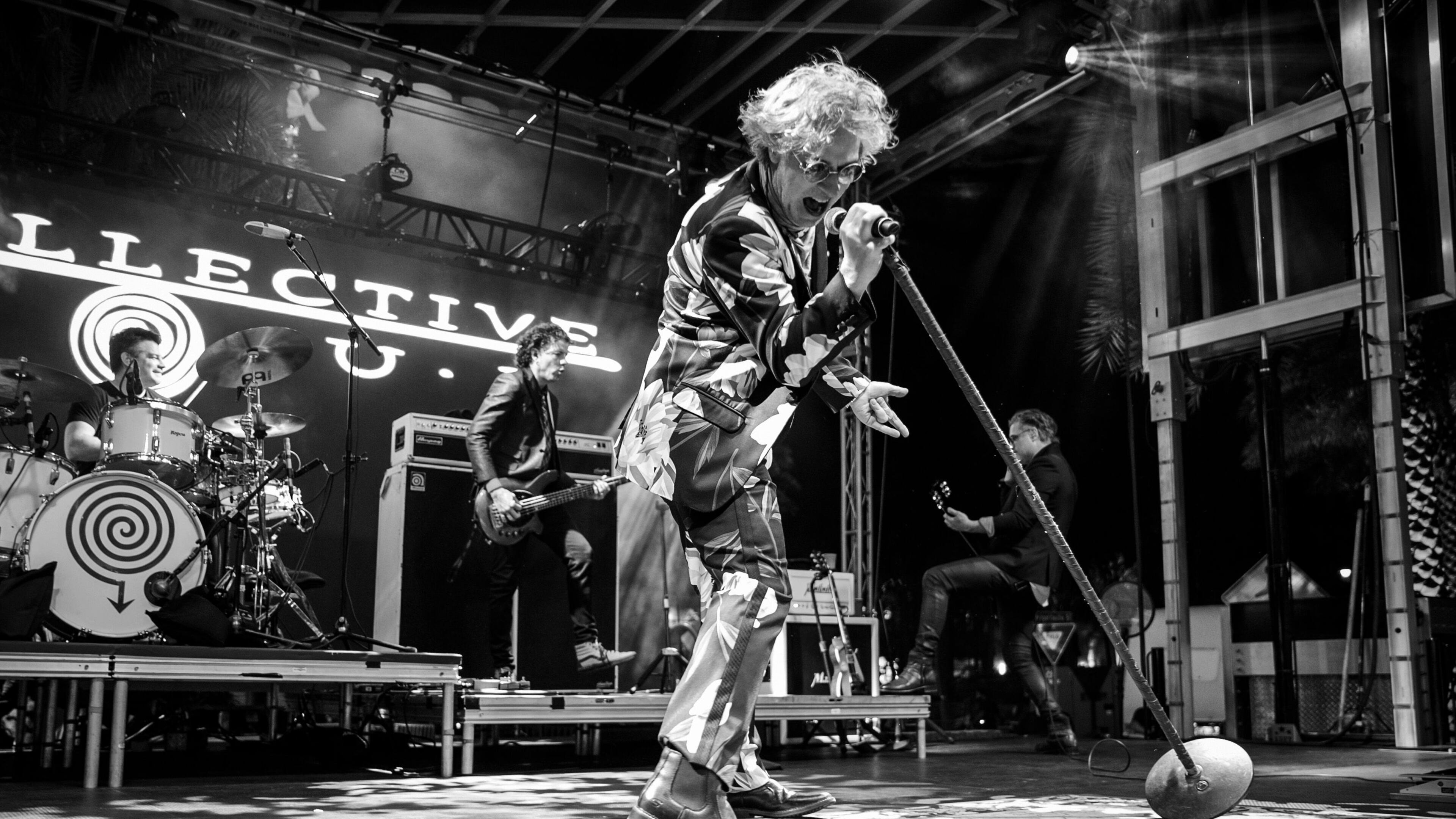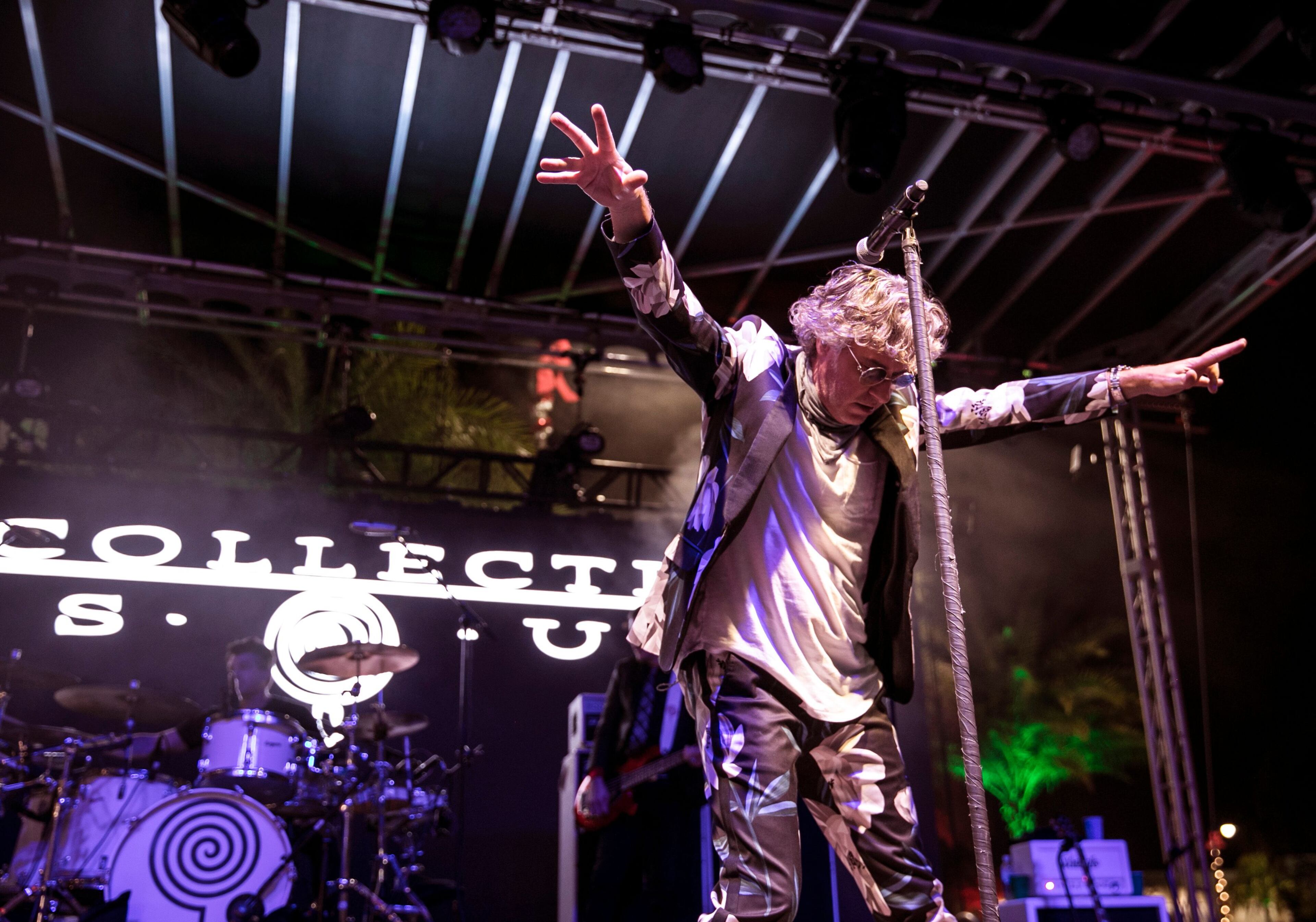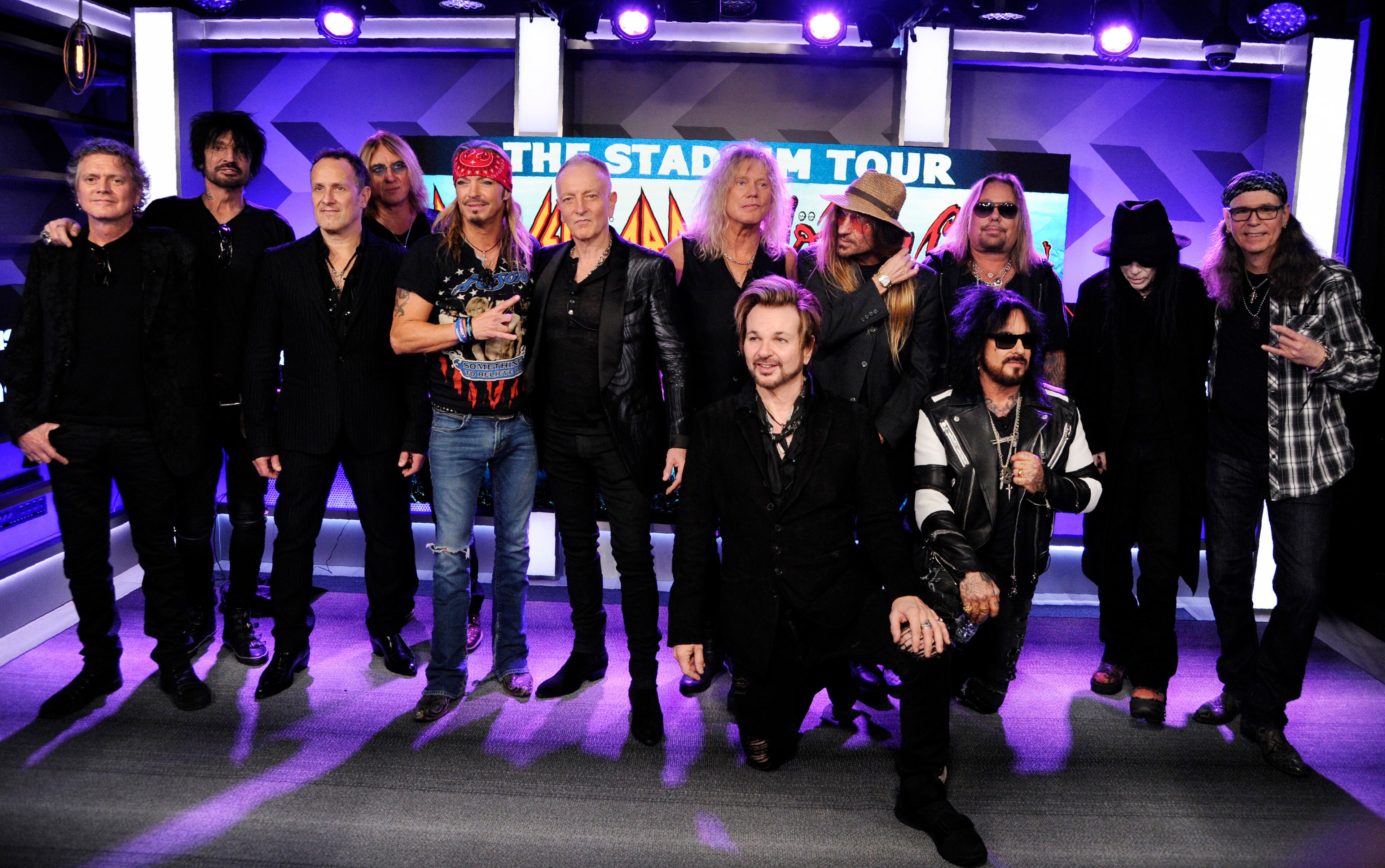Concert industry itching to relaunch - but probably not until summer

Since March 2, Collective Soul’s stage equipment sat in a warehouse in Nashville, as dormant as the concert industry that was silenced a couple of weeks later when COVID-19 demanded a shutdown.
The Atlanta band had wrapped a show at Ryman Auditorium when their “25: Keep on Shining the Light” tour to celebrate their silver anniversary was halted. Soon, a summer outing with Better Than Ezra and Tonic, scheduled for Cadence Bank Amphitheatre at Chastain Park among dozens of other dates, was also nixed.
Nine months later, Collective Soul returned to the stage in Florida to perform for about 1,000 people indoors at Ruth Eckerd Hall in Clearwater and an outside show at Sunset Walk in Kissimmee to celebrate New Year’s Eve.
“It was good to see each other and high-five each other and pretend we were in camp again,” said frontman Ed Roland, who joined Collective Soul guitarist Jesse Triplett and a couple of other musician friends in May to form the low-key side band, The Living Room, and over the summer reunited with Collective Soul for a couple of weeks in Atlanta to record a second new album.
Roland admits to being nervous when he arrived in Florida via tour bus with bassist Will Turpin. (Guitarist brother, Dean, flew in from his home in California, drummer Johnny Rabb from Indianapolis and Triplett from Nashville.)
“I was thinking, is this the right, responsible thing to do? But then I got there, and (the promoters and venues) were taking it as seriously as you would expect them to,” he said. “They only sold half the venue (in Clearwater), so they spread everyone throughout the venue. It was weird walking out there, but everyone kept their masks on and once we started playing, it felt normal again. I thanked the crowd for being responsible and respectful. I think if the artist lets you know that it’s OK to wear your mask, and it’s the right thing to do, people get it.”

While Roland and his bandmates relished playing their melodic rock hits for live audiences again — the outdoors New Year’s Eve concert was staged with barricaded sections to keep fans about 6-to-10 feet from the stage and in separated pockets — he doesn’t envision a “normal” tour until June.
That early summer dartboard is a consistent barometer in the live music industry — at least as of now.
Live Nation, the world’s largest concert promoter which stages the majority of shows at Atlanta venues including Cellairis Amphitheatre at Lakewood, Chastain, the Tabernacle and Ameris Bank Amphitheatre in Alpharetta, is also eyeing a summer restart.
“The health and safety of fans, artists and staff continue to be our top priority, and we’re working closely with local health and government officials to ensure a safe concert experience for all as we get back to the shows we love very soon,” said Peter Conlon, president of Live Nation Atlanta.
Charlie Brusco, president of Red Light Management Atlanta, which counts Collective Soul, Styx and Poison among its roster, is cautiously optimistic that the COVID-19 vaccine will embolden music fans to return to venues. But even a music industry veteran such as himself recognizes the tenuousness in this unprecedented scenario that has silenced touring for nearly a year.
“Everyone is really hopeful that the vaccine will be a key thing to get people to feel good about going out and going to shows,” Brusco said. “But the problem we have across the board for tours to happen in a national way is, if there are certain states you can’t play (because of virus restrictions), then all of a sudden it screws up how you can route a tour. And on our end of the business, we have the added dilemma of being used to putting 10 or 12 people on a tour bus for band or crew, or 8 to 10 people on a plane, and traveling from state to state and going into hotels and being totally exposed to people all over the place.”
Allan Vella, president and CEO of the Fox Theatre, expressed a similar sentiment about reopening the venerated Atlanta venue — which also doesn’t look likely before summer.
“We’re optimistic about the success the government made in expediting a vaccine. Unfortunately, the vaccine must be widely adopted and distributed across the country to the general population before live touring can operate collectively again,” he said. “Our industry is an eco-system that relies on hundreds of markets across the country, operating in unison. Artists and large-scale Broadway tours have to travel market-to-market to recoup the investment necessary to mount such large-scale productions. And post-COVID,, it will be imperative that all markets have consistent health protocols to allow venues to operate at a 100% capacity.”
Indeed, challenges will exist regardless of the size of the venue.

Red Light’s Poison is among the acts on “The Stadium Tour,” the massive outing originally scheduled for last year with Motley Crue, Def Leppard and Joan Jett & The Blackhearts. After canceling its spate of dates last summer, the rock extravaganza is now scheduled to relaunch June 19 in Nashville.
“Are we going to be able to put 35,000 or 40,000 people in a baseball stadium for a concert by then? I don’t know. There are 36 dates (including Aug. 15 at Truist Park), and they’ve all sold that number of tickets because most people hung onto their original tickets…But the problem you’ve got with that is [that] if Major League Baseball isn’t letting in full capacity for games, those summer stadium shows don’t have a chance. They’re not going to let people in for a Poison/Motley Crue show if baseball isn’t allowing that many people in,” Brusco said.
The only certainty at the moment seems to be that those ready to attend a concert are appreciative of the opportunity.
“In between each song, people were screaming, ‘thank you for live music,’” Roland said of Collective Soul’s Florida gigs. “I think some people will wait for the vaccine to get to everyone before going to a show, and I understand that. If you feel like going out, give it a shot. And if you don’t feel safe, don’t go. It’s really that simple. But I know (those concerts) meant a lot to the people there, and a lot to us, too.”


